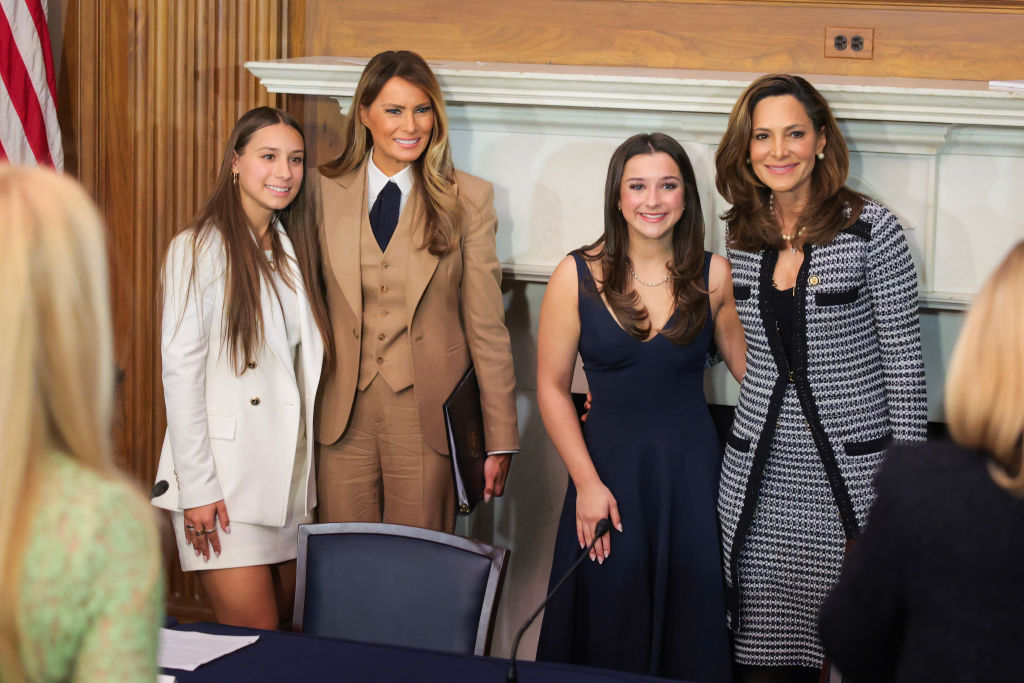The bill, backed by First Lady Melania Trump, received overwhelming bipartisan support.
A ban on deepfake and revenge pornography passed the House with near-unanimous support on April 28, clearing its final congressional hurdle.
The Take It Down Act passed in a 409–2 vote, with just two members voting against it.
It now heads to President Donald Trump’s desk, where it is expected to collect his signature.
The bill aims to criminalize the publication of nonconsensual intimate imagery, often called revenge porn, which is increasingly being generated through artificial intelligence (AI).
The resulting images and videos, although fake, can appear deceptively authentic.
The measure would give online platforms no more than 48 hours to remove explicit content at the request of an identifiable individual featured in the images.
Rep. Maria Salazar (R-Fla.), the bill’s sponsor in the House, said it would help to prevent cyberbullying and “suicide born out of shame.”
“It is outrageously sick to use images, the face, the voice, the likeness of a young, vulnerable female, to manipulate them, to extort them, and to humiliate them publicly, just for fun, just for revenge,” Salazar said on the House floor ahead of the vote.
“And that is why we created this bill, to stop the abuse spreading like wildfire right now on social media.”
Introduced in the Senate by Sen. Ted Cruz (R-Texas), the bill unanimously passed the upper chamber in February and went on to secure the backing of First Lady Melania Trump.
“This legislation is essential for addressing the growing concerns related to online safety, protecting individual rights, and promoting a healthier digital environment,” the first lady said during a congressional roundtable discussion on March 3.
“By advocating this bill, Congress can take an important step toward ensuring accountability and fostering responsible online behavior.
“The Take It Down Act bill represents a powerful step toward justice, healing, and unity.”
At the same event, Elliston Berry, the Texas teen who inspired the bill, recounted the horror she felt when she learned that she had become a victim of deepfake pornography when she was 14.
“Fear, shock, and disgust were just some of the many emotions I felt,” Berry said. “I felt responsible and began to blame myself and was ashamed to tell my parents, despite doing nothing wrong.”
Berry’s mother repeatedly contacted Snapchat to get the fake images taken down. It wasn’t until nine months later, when Cruz’s office got involved, that the pictures were removed from the social media platform.
“It should not take a sitting senator or sitting member of Congress picking up the phone to get a picture down or a video down,” Cruz said at the roundtable.
“It should be the right of every American. Every teenage girl victimized should have the right to get this garbage taken down, and this bill will give them that right as a matter of federal law.”
The next day, Berry was one of the first lady’s special guests for the president’s joint address to Congress.
“Once it passes the House, I look forward to signing that bill into law,” President Trump said while delivering his remarks.
He will now have that opportunity, as nearly all House members, save for Reps. Thomas Massie (R-Ky.) and Eric Burlison (R-Mo.) agreed it should become law.
Massie, explaining his vote in an X post, wrote: “I’m voting NO because I feel this is a slippery slope, ripe for abuse, with unintended consequences.”
He shared an article citing some critics’ fears that the law could be wielded against protected speech without any recourse for those users.
Nonetheless, the president appears poised to sign the bill with the first lady’s blessing.
Heralding the measure’s passage via X, Melania Trump wrote that she was “honored to have contributed to guiding it through Congress.”
“By safeguarding children from hurtful online behavior today, we take a vital step in nurturing our leaders of tomorrow,” she said.

